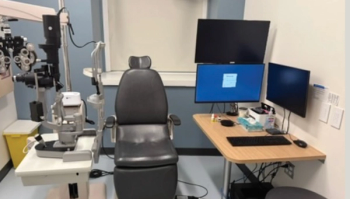
World Glaucoma Day 2008
Organizers of the first-ever World Glaucoma Day are calling the international effort a success, with "amazing achievements" that helped raise awareness about the dangers of glaucoma and the need for screenings and treatment.
Organizers of the first-ever World Glaucoma Day are calling the international effort a success, with "amazing achievements" that helped raise awareness about the dangers of glaucoma and the need for screenings and treatment.
Volunteers from more than 60 countries held screening events, provided information about this second-leading cause of preventable blindness, and lobbied government authorities for recognition and a commitment to work toward eradicating the disease. In all, more than 1000 events were planned in conjunction with the March 6 day, organizers said.
"These events were organized without financial support, during the spare time (and frequently at the expenses) of the local volunteers - doctors, patients or associations: it makes no doubt that the will to tackle the glaucoma pandemic is real and widespread," the organizers said in a statement released on the event's official website,
The groups wanted to merge all of the various glaucoma-awareness activities into a single day to increase awareness of the sight-threatening disease. "The explosive rate of response since then proved that the day was successful beyond expectations," Dr Lambrou told Ophthalmology Times.
What were the aims of World Glaucoma Day?
According to Dr Lambrou, experts have predicted that by 2020, 80 million people worldwide will have glaucoma, and 11 million of these will be bilaterally blind. In developed countries, only 50% of those with the disease are aware they have it, while 90% or more of people with glaucoma in developing parts of the world are unaware they have the disease or haven't even heard of it.
"Firstly we hoped that World Glaucoma Day was a way of jumpstarting the world's awareness activities. Every day, in clinics across the world, ophthalmologists are examining patients who are already nearly blind because of glaucoma. If people were routinely screened, this needn't be the case because the disease would be diagnosed and treated earlier, thus preventing blindness," said Dr Lambrou.
"The second thing we hoped that World Glaucoma Day would achieve was an official recognition by healthcare providers and policy makers that glaucoma is a problem. For various reasons, glaucoma is not seen as an unmet medical need that deserves the full attention of governments," insisted Dr Lambrou.
He drew a comparison with cancer and cardiovascular disease. "If you compare it to these diseases, glaucoma is not thought to be a pressing issue. On the other hand, it is a disease that can be treated effectively and, by doing so, we could prevent so much unnecessary suffering," emphasized Dr Lambrou.
"If you lose your sight because you are unlucky enough to have a disease for which there is no cure, that is one thing, but to lose your sight simply because you were not screened in time is another story entirely. I hope governments will start recognizing and dealing with this problem soon," he added.
Newsletter
Get the essential updates shaping the future of pharma manufacturing and compliance—subscribe today to Pharmaceutical Technology and never miss a breakthrough.




























